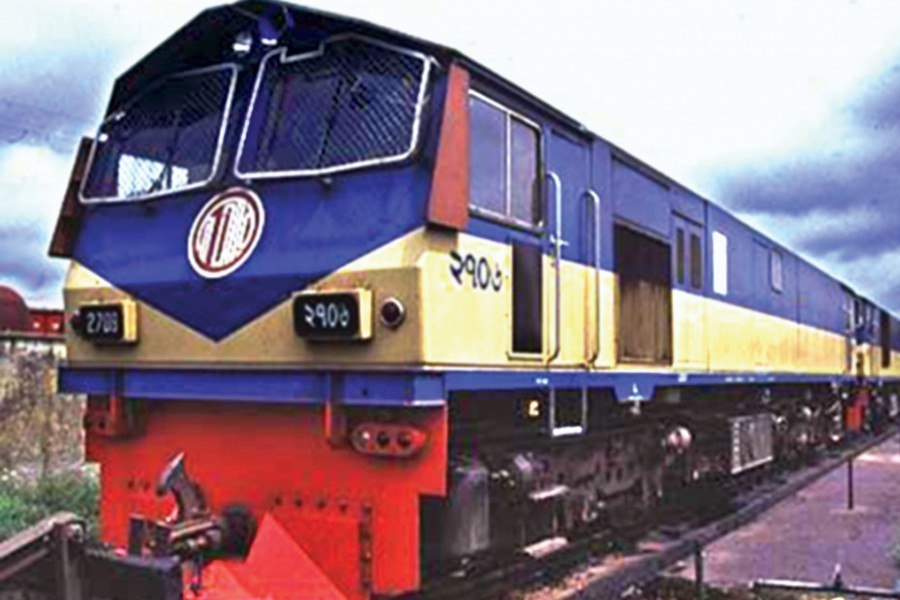
Published :
Updated :

A number of railway passengers jumping off their compartments as their train approaches stations in slow speed are still a common spectacle Bangladesh. This scene belies the increase in the number of railway watchmen throughout a station. The sight is mostly encountered near the large stations. The capital's Kamalapur Railway Station is one of them. Although photographs like this have been printed several times in FE and other dailies, this newspaper has published yet another view last week. The photo exudes an infallible dreadfulness. The recklessness of these passengers is implied; because despite the trains' slow speed, they keep moving. As a passenger jumps from a carriage's heavy metal door on a place far from the last end of the platform, he risks being drawn to physical hazards. A misstep or a wrong attempt to jump off the train might land him in a precarious situation. It might also lead one even to untimely death. These daredevil attempts start as the train crosses the outer boundary of a large station.
The reason behind these escapades is evasion of the ticket collectors' dragnet. Small or mid-level railway stations have veritably become inured to these cheatings. Long ago, passengers pulling the 'chain' of a local train to stop it near their village homes were common practices. The act was illegal. It was originally meant for stopping the train on emergencies. This scourge of chain-pulling appears to have been stringently dealt with by the railway authorities. Maybe, they have installed technical devices to discourage the practice. The pulling of chainat 'convenient places' has long been out of the railway travel-related vices. But scores of other hazardous practices still continue to plague the railway journeys.
Even in the 1960s, travelling by train without ticket was regarded a part of displaying one's heroism. There were people who took enormous pride in their feat of not purchasing a single ticket in their life-long railway travels. Not that they knew any sleight or magic in befooling the ticket checkers. By applying their evilcunning, these passengers simply tricked the railway men into believing that they had their travel tickets. In the earlier days, the very entry of astern-faced and white uniformed ticket checker into a lower class compartment would send a chill down the spine of many passengers. Arguments with the ticket checker would draw further trouble for a passenger without ticket. The solution was instant purchase of tickets with fines. There was no way escaping the punishment. In case of one's failure to pay the ticket price with fine, the railway police would be found quite prompt in executing their duty. To speak in short, in spite of the rampant irregularities besetting the Bangladesh Railway, it is the meagerly paid ticket checkers who appear to have upheld the image of the vital national agency.
The job of the railway loco masters is no cakewalk. He may not have to remain only seated on his cushion, his hands on the wheel, eyes fixed on railway tracks in front of him. The man has to remain watchful of the reckless people walking on the tracks, mobile phone pressed on their ear --- engrossed in talking --- or herds of animals crossing the rail lines. Moreover, there are makeshift kitchen markets abutting therailway tracks. Besides, there are slums. Women cooking nonchalantly as trains speed by at a small distance, idling males playing cards, some sitting on the very lines. A loco master has to remain highly alert to these hazards. The train operators' extent of reflex might prove more than that of the drivers of the other modes of transport. That trains are moving across the country with nominal accidents is no miracle. Credits go to all tiers of the staff who keep a train moving.


 For all latest news, follow The Financial Express Google News channel.
For all latest news, follow The Financial Express Google News channel.